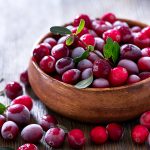Inflammatory bowel diseases, an umbrella term that includes Crohn’s disease and ulcerative colitis, are chronic disorders with severe relapses followed by periods of remission1. Unfortunately, their incidence has been on the rise for the last thirty years, the subject has been put forward and medical expertise is dedicated to finding solutions2.
Although the origins of inflammatory bowel diseases remain unknown, their inflammation is attributed to an exaggerated immune response in people with impaired intestinal microbiota (known as dysbiosis) and a damaged epithelial barrier3,4,5,6. Genetics also contribute to explain the risk of suffering from these diseases, but to a lesser degree than the first hypothesis7.
Probiotics to the rescue
Research confirms that certain bacterial strains (mainly Lactobacilli) and the yeast Saccharomyces Boulardii – which are used in several Probaclac formulas – are a valuable digestive aid in management of inflammatory bowel diseases.
- The strain Lactobacillus rhamnosus is recommended in case of remission of ulcerative colitis, especially in combination with the use of anti-inflammatory drugs (aminosalicylates)1,8. The other strain useful for ulcerative colitis patients is the yeast Saccharomyces Boulardii9.
- For patients with ulcerative colitis, supplementation with probiotics helped to relieve symptoms during an acute attack (although the duration of the relapse was the same)10. It is also encouraging to see the impact of the strains Lactobacilllus acidophilus and Bifidobacterium bifidus on the prognostic (evolution of the long-term condition) of people with such colitis11.
- Clearly, the disruption of the intestinal mucosa (the famous epithelial barrier) is one of the factors causing inflammatory diseases. It is thus important to know that the probiotic strain Lactobacillus rhamnosus protects the integrity of this barrier of the digestive tract12.
- At this time, data of positive impacts of probiotics specifically in Crohn’s disease patients is inconclusive. It is recognized that these good bacteria restore the balance of the digestive microbiota and strengthen the intestinal epithelial barrier, but little is known!
And…What about prebiotics?
Currently, very few studies have addressed the benefits that prebiotics can offer in the treatment of inflammatory bowel diseases. However, some studies investigated the effects of fructo-oligosaccharides (the “FOS” found in probiotics of the Probaclac family) on Crohn’s disease patients and found a reduction in the index of disease and increased amounts of bifidobacterial cells5. It is therefore very interesting to propose the symbiosis of probiotics and prebiotics as a therapeutic solution for this type of inflammation.
Flash quiz to see who the Experts are!
True or False? A balanced intestinal microbiota has an anti-inflammatory effect.
True. The intestinal ecosystem is not inactive ... It performs several physiological and immune tasks, hence the benefit of supplementing probiotics in people with intestinal disease where there is inflammation.
True or False? Lifestyle habits and pharmaceutical history are in no way related to intestinal diseases.
False. Beyond the genetic factor, it is found that long-term dietary changes and antibiotic intake could disrupt the intestinal flora and thus increase the risk of suffering from an inflammatory bowel disease.
REFERENCES
1De Moreno de LeBlanc A et Del Carmen S. Current Review of Genetically Modified Lactic Acid Bacteria for the Prevention and Treatment of Colitis Using Murine Models. 2015 [E-publication].
2Statistique Canada [Website]. Consulted 17 October 2017. http://www.statcan.gc.ca/pub/11-002-x/2004/07/20904/4072778-fra.htm.
3Matijasic M, Mestrovic T, Peric M, Cipcic H et al. Modulating Composition and Metabolic Activity of the Gut Microbiota in IBD Patients. Int J Mol Sci. 2016 Apr ; 17(4).
4Kostic AD, Xavier RJ et Gevers D. The microbiome in inflammatory bowel disease: Current status and the future ahead. Gastroenterology. 2014 ; 146 : 1489-1499.
5Lindsay JO, Whelan K, Stagg AJ, Gobin P et al. Clinical, microbiological, and immunological effects of fructo-oligosaccharide in patients with Crohn’s disease. Gut. 2006 ; 55 : 348-355.
6Bron PA, Kleerebezem M, Brummer R-J, Cani PD, Mercenier A et al. Can probiotics modulate human disease by impacting intestinal barrier function? British Journal of Nutrition. 2017 ; 117 : 93-107.
7Qiao YQ, Cai CW et Ran ZH. Therapeutic modulation of gut microbiota in inflammatory bowel disease: More questions to be answered. J Dig Dis. 2016 Dec ; 17(12) : 800-810.
8Zocco MA, dal Verme LZ, Cremonini F, Piscaglia AC et al. Efficacy of Lactobacillus GG in maintaining remission of ulcerative colitis. Aliment. Pharmacol. Ther. 2006 ; 23 : 1567-1574.
9Guslandi M. Saccharomyces boulardii plus rifaximin in mesalamine-intolerant ulcerative colitis. J. Clin. Gastroenterol. 2010 ; 44 : 385.
10Rather IA, Majumder R, Alshammari FH, Park JG et Bajpai VK. Review – Ulcerative colitis and probiotics: An overview. Pak J Pharm Sci. 2016 Sep ; 29(5) : 1877-1880.
11Palumbo VD, Romeo M, Gammazza M, Carini F, Damiani P, Damiano G et al. The long-term effects of probiotics in the therapy of ulcerative colitis: A clinical study. Biomed Pap Med Fac Univ Palack Olomouc Czech Repub. 2016 Sep ; 160(3) : 372-7.
12Gotteland M, Cruchet S et Verbeke S. Effect of Lactobacillus ingestion on the gastrointestinal mucosal barrier alterations induced by indometacin in humans. Aliment Pharmacol Ther. 2001 ; 15 : 11-17.
13Di Cerbo A, Palmieri B, Aponte M, Morales-Medina JC et Iannitti T. Mechanisms and therapeutic effectiveness of lactobacilli. J Clin Pathol. 2016 Mar ; 69(3) : 187-203.





